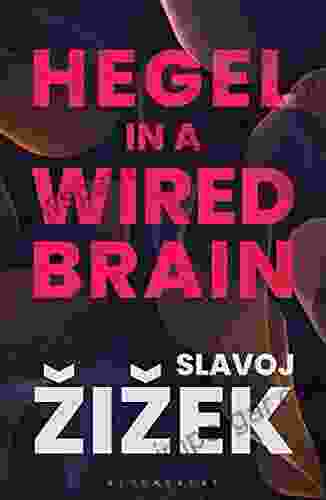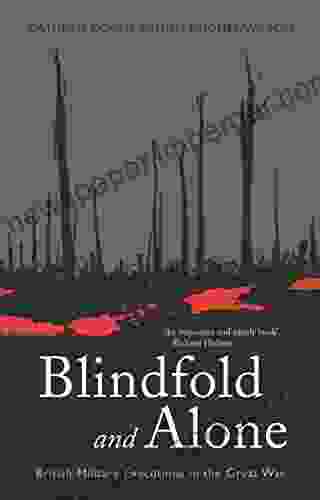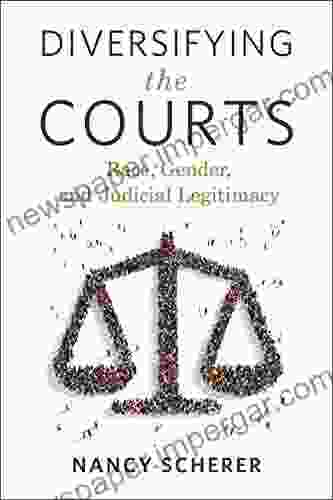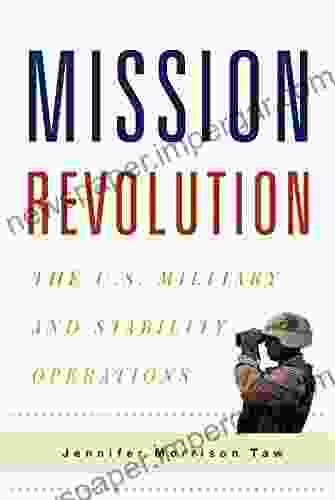Hegel In Wired Brain: Understanding the Evolution of Mind and Knowledge in the Digital Age

In his groundbreaking book, Hegel In Wired Brain, Dr. Peter Mutter explores the intersections of Hegel's philosophy with contemporary neuroscience, offering a groundbreaking new perspective on the evolution of mind and knowledge in the digital age.
4.6 out of 5
| Language | : | English |
| File size | : | 2847 KB |
| Text-to-Speech | : | Enabled |
| Screen Reader | : | Supported |
| Enhanced typesetting | : | Enabled |
| X-Ray | : | Enabled |
| Word Wise | : | Enabled |
| Print length | : | 202 pages |
Mutter argues that Hegel's philosophy provides a unique lens through which to understand the complex relationship between the brain and the mind, and how this relationship is being transformed by the digital age. He draws on Hegel's insights into the nature of consciousness, language, and reason to develop a theory of the "wired brain" - a brain that is increasingly interconnected and shaped by digital technologies.
Mutter's theory of the wired brain has implications for a wide range of fields, including education, psychology, and philosophy. He argues that we need to rethink our understanding of the mind and knowledge in light of the digital age, and that Hegel's philosophy can help us to do so.
Hegel's Philosophy and the Wired Brain
Hegel's philosophy is based on the idea that reality is a process of becoming, or development. He argues that everything in the world is in a state of constant change and evolution, and that this process is driven by the dialectic, or the tension between opposites.
Mutter argues that Hegel's philosophy can be used to understand the evolution of the brain and the mind. He suggests that the brain is a dynamic organ that is constantly being shaped by its environment, and that the digital age is creating a new environment for the brain to develop in.
The digital age is characterized by the increasing interconnectedness and availability of information. This is creating a new kind of cognitive environment for the brain, one that is more complex and demanding than anything that has come before.
Mutter argues that the wired brain is adapting to this new environment by developing new ways to process and store information. He suggests that the brain is becoming more interconnected and efficient, and that it is developing new ways to learn and remember.
Implications for Education, Psychology, and Philosophy
Mutter's theory of the wired brain has implications for a wide range of fields, including education, psychology, and philosophy.
In education, Mutter argues that we need to rethink our approach to teaching and learning in light of the digital age. He suggests that we need to focus on developing students' critical thinking skills and their ability to learn and adapt to new information.
In psychology, Mutter argues that we need to develop new models of the mind that take into account the impact of the digital age. He suggests that we need to focus on understanding how the brain processes and stores information, and how it learns and adapts to new experiences.
In philosophy, Mutter argues that we need to rethink our understanding of the nature of reality and knowledge in light of the digital age. He suggests that we need to focus on understanding how the digital age is changing our experience of the world, and how it is shaping our understanding of ourselves and our place in the universe.
Hegel In Wired Brain is a groundbreaking book that offers a new perspective on the evolution of mind and knowledge in the digital age. Mutter's theory of the wired brain has implications for a wide range of fields, including education, psychology, and philosophy. His book is a must-read for anyone who is interested in understanding the impact of the digital age on our minds and our world.
4.6 out of 5
| Language | : | English |
| File size | : | 2847 KB |
| Text-to-Speech | : | Enabled |
| Screen Reader | : | Supported |
| Enhanced typesetting | : | Enabled |
| X-Ray | : | Enabled |
| Word Wise | : | Enabled |
| Print length | : | 202 pages |
Do you want to contribute by writing guest posts on this blog?
Please contact us and send us a resume of previous articles that you have written.
 Book
Book Novel
Novel Page
Page Chapter
Chapter Text
Text Story
Story Genre
Genre Reader
Reader Library
Library Paperback
Paperback E-book
E-book Magazine
Magazine Newspaper
Newspaper Paragraph
Paragraph Sentence
Sentence Bookmark
Bookmark Shelf
Shelf Glossary
Glossary Bibliography
Bibliography Foreword
Foreword Preface
Preface Synopsis
Synopsis Annotation
Annotation Footnote
Footnote Manuscript
Manuscript Scroll
Scroll Codex
Codex Tome
Tome Bestseller
Bestseller Classics
Classics Library card
Library card Narrative
Narrative Biography
Biography Autobiography
Autobiography Memoir
Memoir Reference
Reference Encyclopedia
Encyclopedia John J Davenport
John J Davenport Joseph J Ellis
Joseph J Ellis John Muir
John Muir John Ward
John Ward Jonah Agunwamba
Jonah Agunwamba Jolyon C Parish
Jolyon C Parish John G Orme
John G Orme Jonathan Eagles
Jonathan Eagles John David Rhodes
John David Rhodes John Howlett
John Howlett John Williams
John Williams Jorge Berger
Jorge Berger John Sharry
John Sharry John P Cann
John P Cann Jordan Cooper
Jordan Cooper John Gallagher
John Gallagher John Pfaff
John Pfaff Jon Savage
Jon Savage Jon Grinspan
Jon Grinspan John J Ahn
John J Ahn
Light bulbAdvertise smarter! Our strategic ad space ensures maximum exposure. Reserve your spot today!

 Hugh ReedThe Nation Divided: Unraveling the Transformative Power of Nationalism Before...
Hugh ReedThe Nation Divided: Unraveling the Transformative Power of Nationalism Before... Anthony BurgessFollow ·5.7k
Anthony BurgessFollow ·5.7k Neil ParkerFollow ·3.5k
Neil ParkerFollow ·3.5k Ibrahim BlairFollow ·11.9k
Ibrahim BlairFollow ·11.9k Jake PowellFollow ·12.3k
Jake PowellFollow ·12.3k Clinton ReedFollow ·7k
Clinton ReedFollow ·7k Charles ReedFollow ·16.7k
Charles ReedFollow ·16.7k Phil FosterFollow ·4.5k
Phil FosterFollow ·4.5k Gordon CoxFollow ·16k
Gordon CoxFollow ·16k

 Jake Powell
Jake PowellThe Constitution of the State of Colorado: A Legacy of...
Since its adoption in 1876, the...
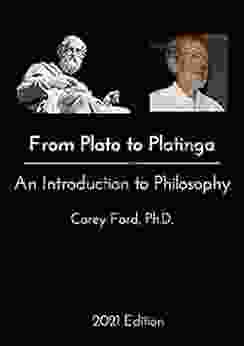
 Devin Ross
Devin RossFrom Plato to Plantinga: A Journey Through the History of...
Philosophy is the study of...
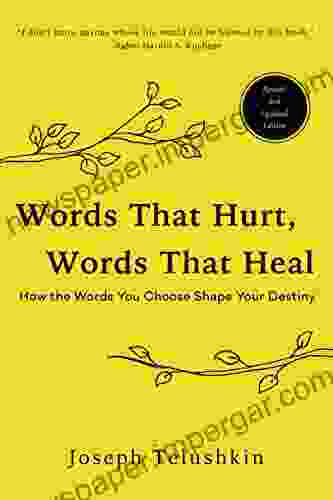
 Robin Powell
Robin PowellWords That Hurt, Words That Heal: The Power of Language...
Words are powerful. They can...

 T.S. Eliot
T.S. EliotTantalize Your Taste Buds with Over 90 Low-Carb Ethnic...
Indulge in a Culinary Adventure with "Over...
4.6 out of 5
| Language | : | English |
| File size | : | 2847 KB |
| Text-to-Speech | : | Enabled |
| Screen Reader | : | Supported |
| Enhanced typesetting | : | Enabled |
| X-Ray | : | Enabled |
| Word Wise | : | Enabled |
| Print length | : | 202 pages |


